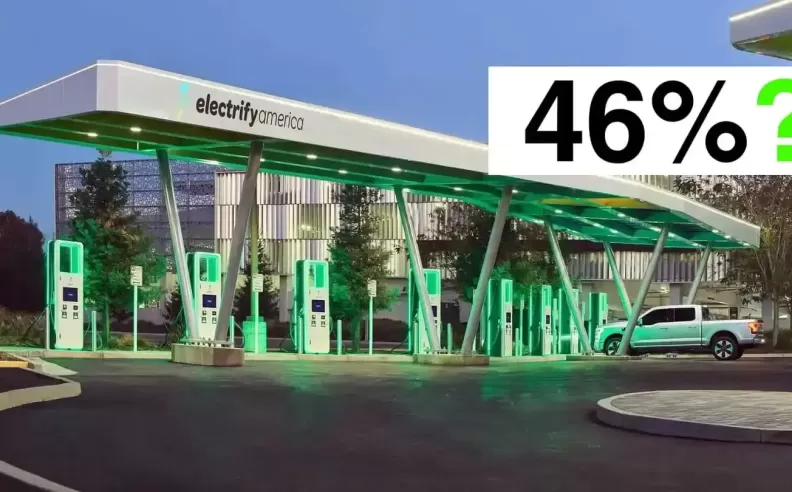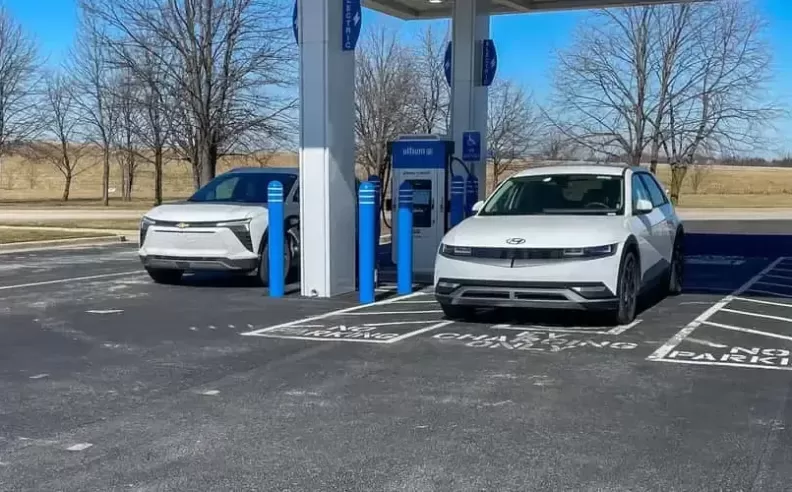
The recent McKinsey & Company Mobility Consumer Pulse survey has stirred the automotive world with its revelation that 46% of American electric vehicle (EV) owners are contemplating a switch back to internal combustion engine (ICE) vehicles. This statistic has been seized upon by EV skeptics as proof that the transition to electric mobility is fraught with issues. However, a deeper analysis reveals a more nuanced picture, highlighting the need for improved support for new EV owners.

The survey's findings suggest a significant shift in the perception of EVs among current owners, contradicting the previously held belief that once consumers go electric, they rarely revert to gas-powered cars. Philipp Kampshoff, who leads McKinsey's Center for Future Mobility in the Americas, cautions against overreacting to this headline. He views it as a warning that highlights the areas needing urgent attention to sustain the momentum of electric mobility.
The McKinsey study surveyed around 36,000 people across 15 countries, with about 4,000 respondents from the U.S. Among these American participants, roughly 1,840 expressed a likelihood to abandon EVs for their next vehicle purchase. This number, while seemingly large, is a small fraction of the approximately 1.4 million new EVs registered in the U.S. in 2023. The issues cited by these dissatisfied owners are familiar: unreliable public charging infrastructure, inability to charge at home, and range anxiety.
The profile of EV buyers is evolving. Historically, EV adopters were typically affluent, single-family homeowners, often driving Teslas. Today, more affordable EVs from various brands are attracting a diverse group of buyers, including those living in apartments without easy access to home charging. These new owners are less tolerant of the inconveniences that early adopters accepted, such as the lack of a robust charging network and significant depreciation of their vehicle’s value.
A critical pain point for many new EV owners is America's inconsistent charging infrastructure. Unlike Tesla’s extensive and reliable network, other EV brands struggle with both the availability and reliability of public chargers. This issue is particularly problematic for younger buyers, often with young families, who rely heavily on public charging due to their living situations. The inconvenience and frustration of finding a working charger can be a significant deterrent.
Additionally, the dramatic price cuts in the EV market have affected resale values, making the financial aspects of owning an EV less appealing. This economic factor is another major reason some current owners consider returning to ICE vehicles.
There's a clear need for better education and support for new EV owners. Many buyers are not fully informed about the practical aspects of owning an EV, such as charging logistics and energy consumption. Car dealers, who traditionally educate customers, often lack the incentives or resources to provide this guidance effectively.
Automakers and dealers must step up to ensure that potential buyers understand the unique requirements and benefits of EVs. Improved education on charging options and addressing resale value concerns could significantly enhance the ownership experience and reduce the likelihood of switching back to gas-powered vehicles.
Despite the challenges, there is reason for optimism. The McKinsey survey also highlights that 71% of global respondents remain loyal to their EVs. This high retention rate indicates a strong foundation for the future of electric mobility. The issues driving dissatisfaction—charging infrastructure and resale values—are solvable with concerted effort from all stakeholders involved.
Addressing these concerns promptly and effectively will be crucial in maintaining the momentum of the EV transition. The industry must focus on enhancing the charging network, educating new buyers, and stabilizing vehicle values to ensure a positive and sustainable shift towards electric vehicles.

Wael is an automotive content writer specializes in creating written content for Motor 283. Producing a wide range of content, including blog posts, articles, product descriptions, reviews, and technical guides related to cars, trucks, motorcycles, and other vehicles, with an unprecedented passion for cars, and motorcycles.
